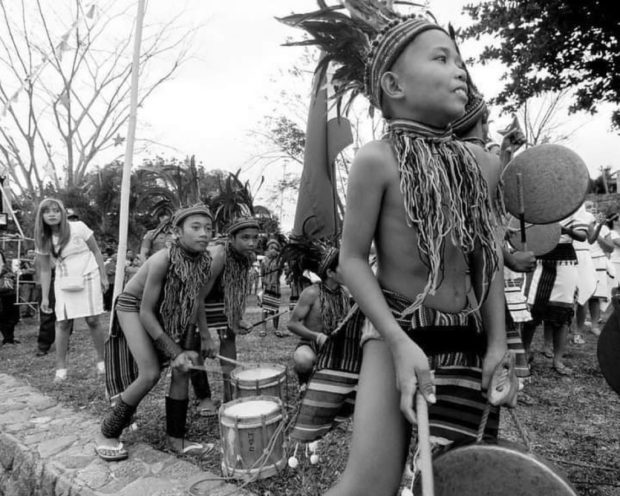Book on ‘Tadek’ launched to safeguard Ilocos Norte native dance

TINGGUIAN TRIBE Efforts have been made to preserve and document the unique tribal dance known as “Tadek” that originates in Nueva Era in Ilocos Norte. Photo courtesy of Ilocos Norte provincial government
LAOAG CITY –– A unique traditional dance originating from Nueva Era town in Ilocos Norte province is in danger of being forgotten, but a book was launched on April 23 to safeguard this “community heritage” for future generations.
Dr. Zyrill Ianna Pauline Domingo-Pe Benito, educator, and Ilocano cultural worker, documented the nuances and intricacies of the native Ilocano dance called “Tadek” on a 73-page book.
Tadek is a unique dance performed by the tribal communities of Nueva Era, commonly known as “Tingguian,” to express their jubilation over victory, courtship, marriage, thanksgiving, and other significant events in their life, according to Pe Benito.
The book will offer a comprehensive reference to cultural workers, researchers, and educators on the “unity of ethnic dances between the valley or mountain Tingguians, how and when to dance Tadek, and a complete dance literature with musical transcriptions.”
The book publication came at a critical time when a nation has become more prone to forgetting, particularly one’s roots, history, and traditions, she said.
In a blurb for the book, Herdy La. Yumul, sociologist, said that documenting the traditional dance is important as it had been transmitted only by “oral tradition largely dependent on the limitations and excesses of human memory.”
Mark Gregor Dela Cruz of the National Commission for Culture and the Arts said the fresh documentation “extended the life of the dance,” which needed to be safeguarded against “threats of forgetting, losing, and disappearing in history.”
Tadek has not only marked the significant events in the life of every Tingguian. The dance also became a symbol of unity among the eight different Tinnguian “rancherias” (villages), which existed in the town even before 1572.
Around 1,000 copies of the book were printed, with some of them to be donated to government libraries in the province.
Alegria Tan Visaya, president of the international Ilocano language and cultural organization “Nakem,” said she hoped more materials like the book would be created in the future, which could speak of “our identity as people and as a nation.”